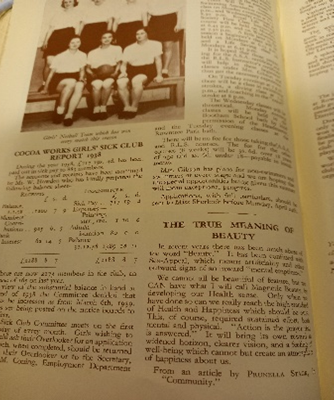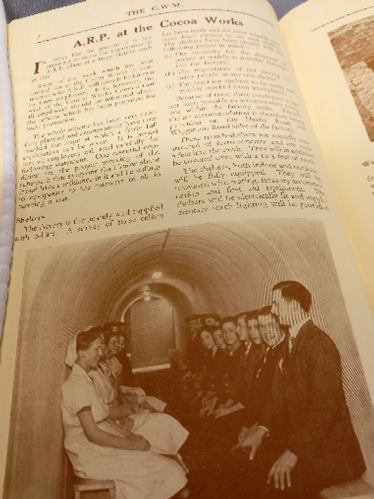The history of Rowntrees is famous across York and beyond not just for chocolate and confectionary, but also the work to alleviate poverty and develop community in the early 20th century. Second year student, Catherine Gallagher, had the opportunity to delve into the Rowntree archive while on placement at the Borthwick Institute for Archives, focusing particularly on the period of the Second World War. She shares her thoughts here.
The Rowntree company is well known for chocolate and the company’s factories, especially in York. However, the Rowntree family were not ordinary factory owners, as they built an entire community, including housing and even a theatre. The priority of these developments, such as the building of New Earswick, was to create a community with better housing and local facilities. This sense of community continued even throughout the war.
When researching the theatre collection during my placement, one thing that stood out was that plays still took place throughout the war – one of the ways people tried to keep up morale. As well as the theatre, Rowntrees also helped the community with sports clubs for men and women. They often did this for men so that they would be fit for the army, and the image from the archive collection below is an example of a men’s rugby club and the results of the match.

Results were often published in the Rowntree company newspaper, the Cocoa Works Magazine. This was one of the documents I studied during my placement, while researching the Rowntree company’s involvement in the war and the sense of community the company created. This magazine not only spoke about local sporting events and games but also had letters from soldiers on the front lines talking about their experiences. They would often mention women working in the factories.

The company also advertised volunteer work or opportunities for the less fortunate. An example of this would be when mothers with young children who needed to work could drop their children off at the newly created day-care, so they could pick up on more wartime work. This further highlights how the Rowntree company acted to create a sense of community during World War II, reporting their work and events through their magazine, again helping to keep morale high and spread awareness of extra support for the less fortunate.

I enjoyed the time I spent on this project as I thoroughly enjoyed looking through the sources about the Rowntree theatre and the Rowntree legacy. I especially enjoyed learning about the company’s war effort, as studying the Second World War is one of my favourite subjects. Overall, thanks to this project, I have learnt so much about York’s part in the Second World War and its community, especially that the Rowntree company played a more significant role than I had expected.

